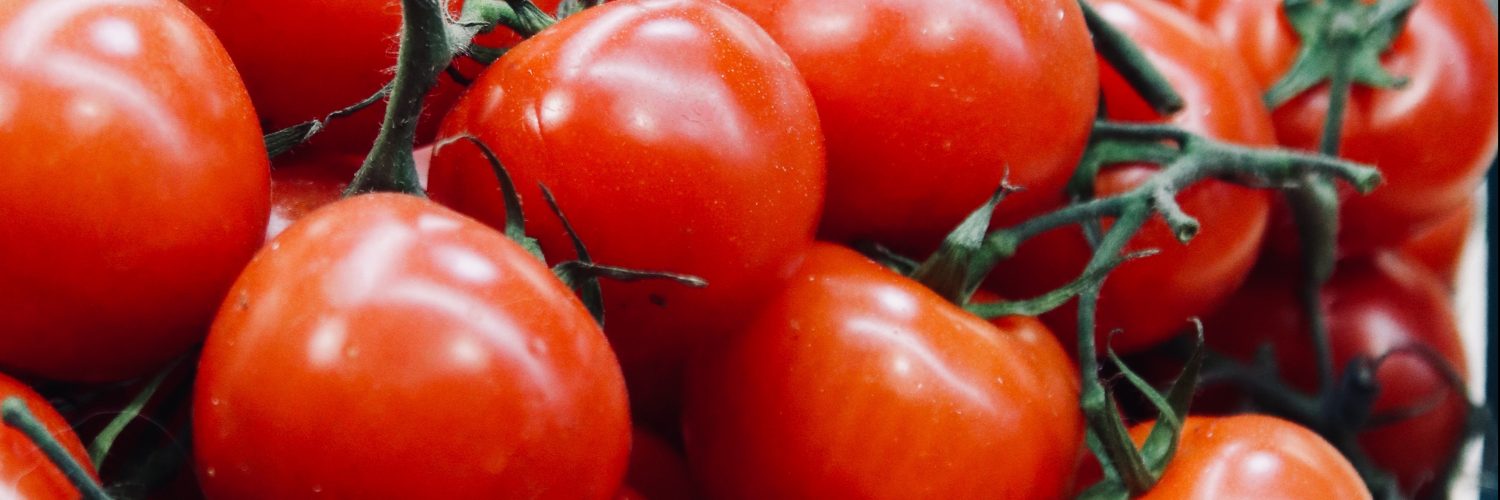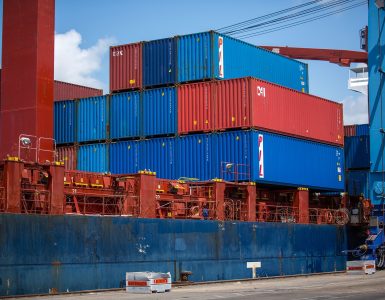Tomato growers in Mexico came to terms with the U.S. Department of Commerce on Thursday, September 19, signing an agreement to suspend an anti-dumping investigation into tomatoes coming into the U.S. through Arizona’s ports of entry. While the new deal raises the floor price for Mexican tomatoes, it also ends a 17.56 percent duty that was set in motion in May when the Tomato Suspension Agreement was originally cancelled. Without the new deal, the duty was set to raise by an additional two percent.
Following the end of the agreement heading into the summer, officials from the Commerce Department and their Mexican counterparts discussed cutting a completely new suspension agreement, a move spearheaded by the Florida Tomato Exchange. But for the Fresh Produce Association of the Americas (FPAA), the Nogales-based produce corporation led by Lance Jungmeyer, the move has not been well received.
Leaders at the FPAA and importers here in Arizona are concerned about the inspection requirements that could end up leading to more delays at the border where wait times for trucks bringing produce in are already high. For perishable commodities, such as tomatoes and other produce items, this could end up being a major loss in product, money, and solid working relationships.
Now, the FPAA, Mexican exporters, and Arizona importers all have another shared concern on their hands: the construction of new warehouse spaces along the U.S.-Mexico border, namely in Nogales.
Construction centered around adding more square footage to the inspection centers across the Southwest is projected to cost stakeholders $200 million when completed. In Nogales, which sees a heavy flow of trucks carrying tomatoes and other perishables every single day, additions could cost anywhere between $70-$100 million. At the FPAA, its leaders argue that they’ll face unjustified costs and “disruption to business due to the controversial border inspection mechanism, which acts as a technical barrier to trade.”
According to the new agreement, 92 percent of Mexican tomato trucks will be subject to quality control inspections. The Department of Commerce, which worked with the Florida Tomato Exchange to end the Suspension Agreement in May, argued that the inspection centers would help to prevent imports of tomatoes of poor quality or poor condition that have price suppressive effects for the entire tomato market in the United States. That hasn’t settled well with Jungmeyer and his constituents.
“Because of the increase in tomato inspections, the importers’ tomatoes will require up to an extra 24-48 hours in staging at the border. Holding tomatoes adds costs and reduces shelf life. It is a completely ridiculous set of requirements that amounts to a Technical Barrier to Trade (TBT),” said Jungmeyer.
The FPAA has also pointed out that in addition to the $100 million-or-so bill for warehouse spacing, importers and stakeholders in the U.S. will be hit with bills amounting to another $50 million relating to fees and other costs, such as needing to hire more workers to inspect at a higher rate than normal. According to Jungmeyer, an average bill to inspect a truck is $210, but then you add more workers–up to four more inspection employees per truck–and you end up with more fees than intended.
Another issue hanging over the new deal is lack of protections over importers and exporters if inspections take longer than expected. The new inspections could create a logistical nightmare, especially since 120,000 trucks go through the border every year, each one needing to be inspected at an average of 90 minutes.
The agreement states that the inspectors from the USDA will finish their checks within 48 hours of being notified, or within 24 hours if their inspectors are already in the general area of the border’s ports of entry.
But adding this time will reduce the integrity of the imports and limit overall shelf life, especially considering the fact that from harvest to distribution center, a tomato has about a week to keep its freshness.
“The inspection requirement is simply untenable. From facilities to the personnel required, to the delays in the flow of tomatoes to market,” said economic consultant Luis Ramirez. “It seems odd to hear that up to 24 hours is acceptable. The work by the U.S. and Mexico to date has been to reduce the time of the inspection process while ensuring that security and safety measures are met. This does nothing to protect the consumer but rather a small number of producers in Florida. It just does not make sense and I understand the frustration of the producers in Mexico and the importers in Arizona and in other states.”
According to Jungmeyer, this all would set off a chain reaction at the border, backing up not only tomato trucks but other commodities as well. And with the heaviest part of produce season kicking in at the same time as the inspections–mid-March of 2020–shooting USDA inspection up from 15 percent to 28 percent, a lot of industries will feel the strain.
“If I’m a citrus importer, and I’m used to getting my inspections done in four hours, the USDA may not get to my citrus if tomatoes are needed to be inspected first,” he says. “Other services will be slowed down including deliveries. We’re looking at the prospect of trucks and trailers and driver capacity being harmed.”
















Add comment